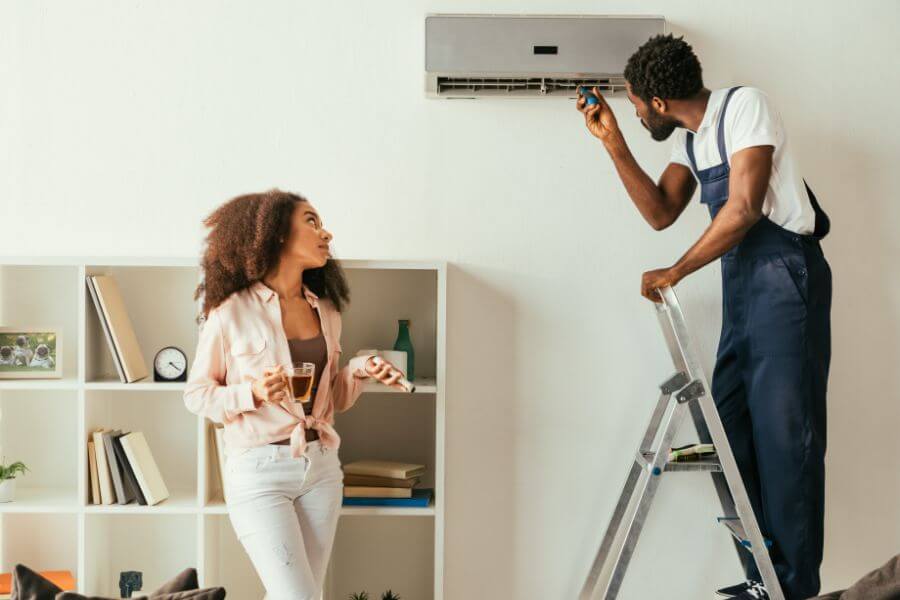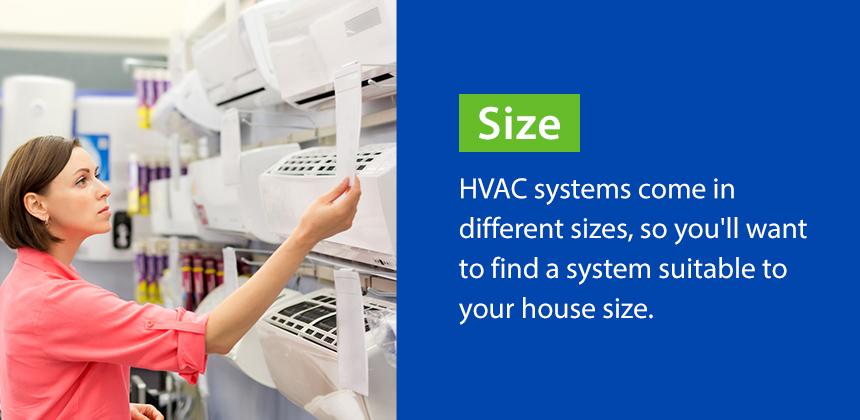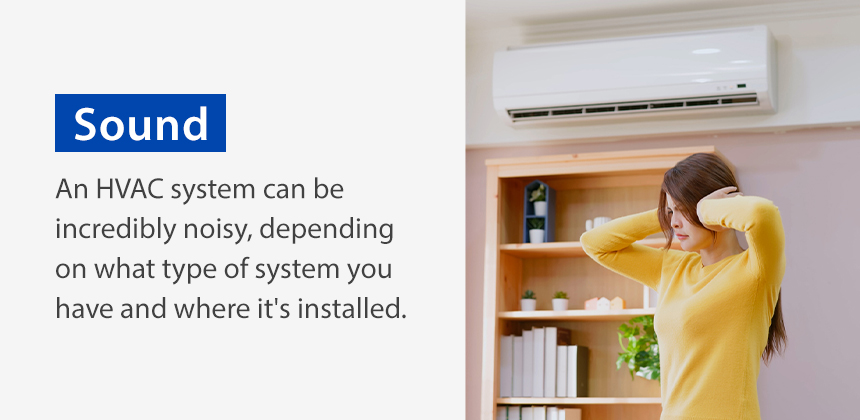
You want to be comfortable in your home, and choosing the right HVAC system plays a significant role in creating a comfortable environment. Different HVAC systems have various benefits and features that impact their effectiveness and efficiency.
Many factors go into choosing an HVAC system, whether you’re buying a new one or replacing an outdated one. In this HVAC buying guide, you’ll learn about the factors you should consider to select the best HVAC system for your home.
You can select from many different HVAC systems, each with unique features and components. The system you choose should meet your home’s needs and help you save on energy costs. Several variables influence what will be the best HVAC system for your house. Here are the factors to consider:
Price is a critical factor. Whether you’re buying an entire HVAC system or replacing part of an existing system, costs vary depending on the brand, the size and the labor for installation. HVAC systems can be complex and generally have many components, which can affect the cost.
For example, central air conditioners often cost several thousand dollars, depending on the size and the installation fees your HVAC contractor charges. More complex systems generally have higher costs, while simpler systems have lower costs. Your HVAC installer can help you choose a system that meets your budget while keeping your home comfortable.

HVAC systems come in different sizes, so you’ll want to find a system suitable to your house size. If you have a larger house, a smaller system will need to work harder to keep your home comfortable, reducing its efficiency and life span. Oversize systems can also encounter similar problems since they will cycle too frequently. A correctly sized system will provide the cooling, heating, and comfort your home needs.
Calculating the correct size includes accounting for insulation, sun exposure, tree coverage, ceiling height, and square footage. Your HVAC installer can help you choose a system that fits your home size. Once you’ve determined the right size, you can choose a system that meets those requirements.
When you’re looking for an HVAC system, you’ll want to consider its efficiency. A more efficient HVAC unit can reduce your monthly spending on utility bills since the system can provide superior comfort without using as much energy. While standard-efficiency and high-efficiency systems have the same labor components, a high-efficiency system will be more cost-effective over the years, even if the initial investment is more than other systems.
You can determine a system’s efficiency by looking at the seasonal energy efficiency ratio (SEER) and the annual fuel utilization efficiency (AFUE). SEER indicates the cooling efficiency, while AFUE shows the heating efficiency. Combining the two ratings will help you find an efficient system for your home so you can maximize your savings.
HVAC systems need maintenance to ensure they can continue to operate throughout their expected life span. Generally, all HVAC units need annual service to maintain the efficiency and warranty of the system, but some units require more maintenance than others. Some tasks you may need to complete throughout the year to keep your HVAC system in the best condition possible include the following:
Most tasks are similar regardless of the type of HVAC system you have, but you won’t have to perform ductwork maintenance if you have a ductless system. Your HVAC provider can help you determine the maintenance requirements for your system so you can ensure it stays efficient throughout its life span.

An HVAC system can be incredibly noisy, depending on what type of system you have and where it’s installed. Noisy units can easily irritate and distract the members of your household, especially if you spend a lot of time at home. An HVAC professional can design a system that isn’t too noisy and determine where to install noisier components so they won’t disturb you.
Many HVAC systems have unique features affecting their performance, efficiency and how they work to keep your interior comfortable. Consider the following special features to find the right units for your home:
Your HVAC installer can help you find the best features to suit your needs, whether you’re looking for a smart unit to maximize your efficiency and cost savings or one to better keep your living area at your ideal temperatures.
Air conditioning units and heat pump systems typically use electricity, but heating systems can use various fuel sources, including natural gas, propane, heating oil, or electricity. Different heating fuel sources may provide additional energy efficiency depending on your location and heating needs.
However, you’ll be limited by what fuel sources you have access to in your home or can install. Adding the necessary equipment to convert from one heat source to another can increase costs for installation, but the upfront price may be worth it if it makes your system more energy efficient and help you save on fuel costs over time. If you want to use a different fuel source than what is currently installed in your home, talk with your HVAC provider.

After considering several factors, you can choose the best HVAC system for your home. With Shipley Energy, you can make an informed decision to increase energy efficiency and keep you comfortable. Our team can handle your heating and cooling needs, whether you need installation, maintenance or repairs. We’ll guide you through the process, match you with appropriate HVAC systems for your home and help you with any maintenance or repairs throughout the life of your system.
We also offer protection plans that cover maintenance, repairs, or even replacement for a small monthly fee. Customers with the protection plan have priority scheduling for services and inspections, so you also get the peace of mind of knowing your equipment is taken care of properly. Contact us today to learn more about how we can help you install and protect your equipment!